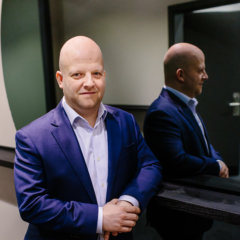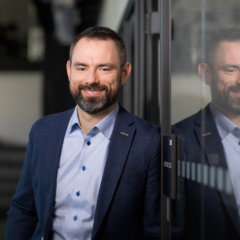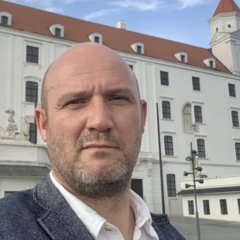
Lucie Gřešulová
Consultant
Unicorn Systems
Lucie works at Unicorn as an Atlassian Consultant. She consults with clients on various solutions and options over team collaboration tools such as Jira and Confluence. She has been in IT for 3 years, and it is this field in which she has come to her own.

Martin Popelák
SAFe Program Consultant and Agilist
Freelancer
Martin has been a lecturer and coach of agile trainings and workshops for more than ten years and has practical experience from many companies in the Czech Republic and abroad. His main strength is the ability to connect the topics he teaches with real-life examples, as he is an agile coach at Siemens PLM, where he is involved in the agile transformation of an organization with more than 2,000 employees. Martin is a course trainer at SCALED AGILE, and holds the SAFe® Program Consultant certification, which allows him to teach SAFe certification courses. Martin has been the lead instructor for over 100 different agile courses and is passionate about helping companies with agile training and agile process improvement. Martin studied in the USA, so the training can be conducted in both Czech and English.

Patrik Waloszek
Consultant and Developer
Unicorn Systems
Patrik has been in the IT world for 20 years. He has been with Unicorn for the last 7 years as an Atlassian consultant and developer. He focuses on the design and implementation of solutions using Jira and other products from the Atlassian family. He tries to pass on his experience in the form of consulting as well as through presentations and webinars.
Agile Approach in (Non-)IT Project Management
Agile project management is the most widespread tool for managing software development projects and products worldwide – from small applications to enterprise platforms. Many teams have great theoretical experience of how Agile, Kanban and SCRUM should work, but it is often the specific implementation that limps along in an effort to use a suitable tool to support the process management. During this talk, you will learn from experienced Agile trainers how to properly connect the theoretical line with the practical aspects, in this case using the Agile tool JIRA. In fact, proper support of agile processes and tools is very important, especially in today’s “new normal” era where many groups work in distributed teams and “sticky notes” are no longer a suitable tool. In particular, you will learn how to properly organize the Product Backlog, plan iterations and sprints using, for example, a Scrum board. We will also share tips on how to use quick filters and swimlanes for better visibility. The next demo will be dedicated to the Kanban methodology, where we will look at how to configure the Kanban board, view the requirements backlog, and how to better get an overview of tasks using quick filters.

























